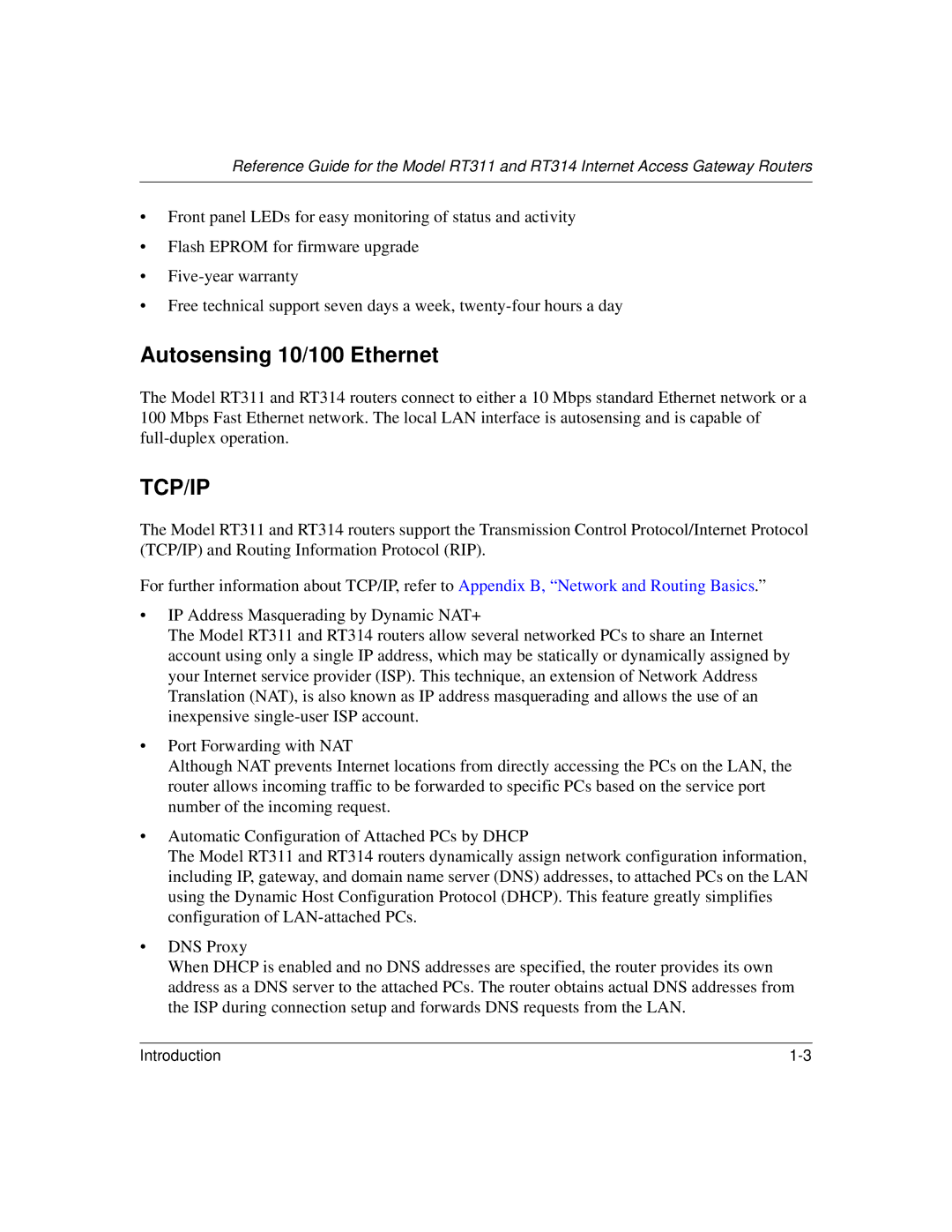
Reference Guide for the Model RT311 and RT314 Internet Access Gateway Routers
•Front panel LEDs for easy monitoring of status and activity
•Flash EPROM for firmware upgrade
•
•Free technical support seven days a week,
Autosensing 10/100 Ethernet
The Model RT311 and RT314 routers connect to either a 10 Mbps standard Ethernet network or a 100 Mbps Fast Ethernet network. The local LAN interface is autosensing and is capable of
TCP/IP
The Model RT311 and RT314 routers support the Transmission Control Protocol/Internet Protocol (TCP/IP) and Routing Information Protocol (RIP).
For further information about TCP/IP, refer to Appendix B, “Network and Routing Basics .”
•IP Address Masquerading by Dynamic NAT+
The Model RT311 and RT314 routers allow several networked PCs to share an Internet account using only a single IP address, which may be statically or dynamically assigned by your Internet service provider (ISP). This technique, an extension of Network Address Translation (NAT), is also known as IP address masquerading and allows the use of an inexpensive
•Port Forwarding with NAT
Although NAT prevents Internet locations from directly accessing the PCs on the LAN, the router allows incoming traffic to be forwarded to specific PCs based on the service port number of the incoming request.
•Automatic Configuration of Attached PCs by DHCP
The Model RT311 and RT314 routers dynamically assign network configuration information, including IP, gateway, and domain name server (DNS) addresses, to attached PCs on the LAN using the Dynamic Host Configuration Protocol (DHCP). This feature greatly simplifies configuration of
•DNS Proxy
When DHCP is enabled and no DNS addresses are specified, the router provides its own address as a DNS server to the attached PCs. The router obtains actual DNS addresses from the ISP during connection setup and forwards DNS requests from the LAN.
Introduction |
